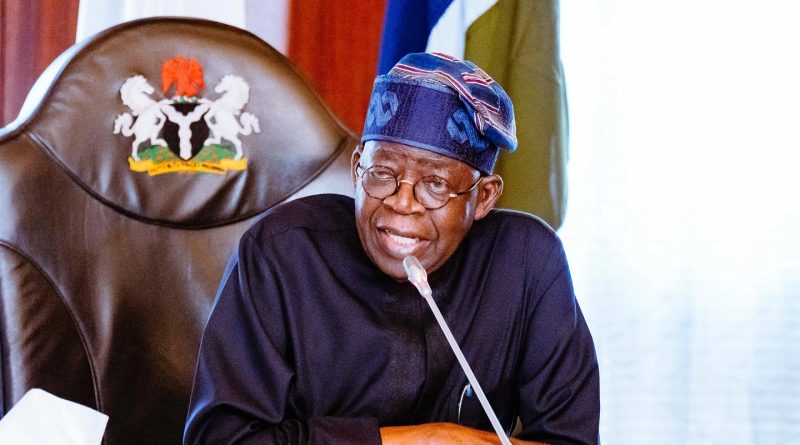Tinubu asks Senate to approve fresh N1.150trn loan, six days after securing $2.3bn external borrowing approval
President Bola Tinubu has asked the Senate to approve a fresh N1.150 trillion loan programme as part of the resources to fund Nigeria’s 2025 budget.
The request was contained in a letter read by the Senate President, Godswill Akpabio, during plenary on Tuesday.
In the letter, President Tinubu explained that the facility would be sourced from the domestic debt market.
He said the borrowing had become necessary due to the increased size of the 2025 budget.
The president noted that his request was made in accordance with Section 44 (1) and (2) of the Fiscal Responsibility Act.
After reading the correspondence, Mr Akpabio referred the proposal to the Senate Committee on Local and Foreign Debt for further consideration and directed the committee to report back within one week.
This latest borrowing plan comes just six days after the National Assembly approved the president’s request to secure a $2.3 billion external loan, also incorporated into the 2025 budget.
The external loan is expected to be sourced through one or a combination of the following instruments: Eurobond issuance, loan syndications, bridge-finance facilities arranged by book-runners, or direct borrowing from international financial institutions.
Just four months ago, President Tinubu also sought and obtained approval for $21.5 million and ¥15 billion in loans, alongside a €65 million grant, as part of the federal government’s proposed 2025–2026 external borrowing plan.
These successive loans have contributed to a steady increase in Nigeria’s public debt. The Nigerian government relied on borrowing to finance the nation’s budget. Although the Tinubu administration has repeatedly claimed that revenue generation has increased since the president assumed office, the practice of borrowing has nonetheless persisted.
According to Nigeria’s Debt Management Office (DMO), as of 31 December 2024, Nigeria’s total public debt stood at N144.7 trillion (approximately $94.2 billion). About 51.4 per cent of the total (N74.4 trillion) is domestic debt, while 48.6 per cent (N70.3 trillion) is external debt.
The rising debt has resulted in increased debt servicing costs. In 2023, Nigeria spent N7.8 trillion on debt servicing, a 121 per cent increase compared to N3.52 trillion in the previous year. The amount spent on debt servicing rose to N13.12 trillion.
In 2024, there was a 68 per cent increase from the 2023 figure. These high debt servicing costs mean less funds for important sectors such as infrastructure and social services, potentially hindering economic growth and development.
Despite these fiscal pressures, the Tinubu administration maintains that borrowing remains an essential instrument for development financing, especially as domestic funding sources continue to dwindle.
Borrowing is not limited to this administration, as successive governments in Nigeria borrowed to finance projects, even while struggling to settle the existing debts.
Mr Tinubu, in a media chat last December, defended his borrowing strategy, claiming that he took the decision not to inflict pain on Nigerians, but because of his commitment to infrastructural development.
The president said borrowing is not a crime and that many decayed infrastructures need funding.
Which 2025 budget is the loan funding?
Nigeria is currently operating two budgets within a single fiscal year. The first is the capital component of the 2024 budget, which was initially meant to end in December 2024 but has since been extended twice — first to June 2025 and later to December 2025.
Simultaneously, the 2025 budget of N54.2 trillion, increased by N7 billion from the president’s initial proposal, is also in effect.
Despite the dual budget operations, several Ministries, Departments, and Agencies (MDAs) have complained of inadequate fund releases for project execution.
There are speculations that only about 40 per cent of the capital component of the 2024 budget has been implemented, while work on the 2025 capital component is yet to commence. This has fueled speculation that the 2025 capital budget, which ordinarily should conclude by December, may also be extended to 2026.


